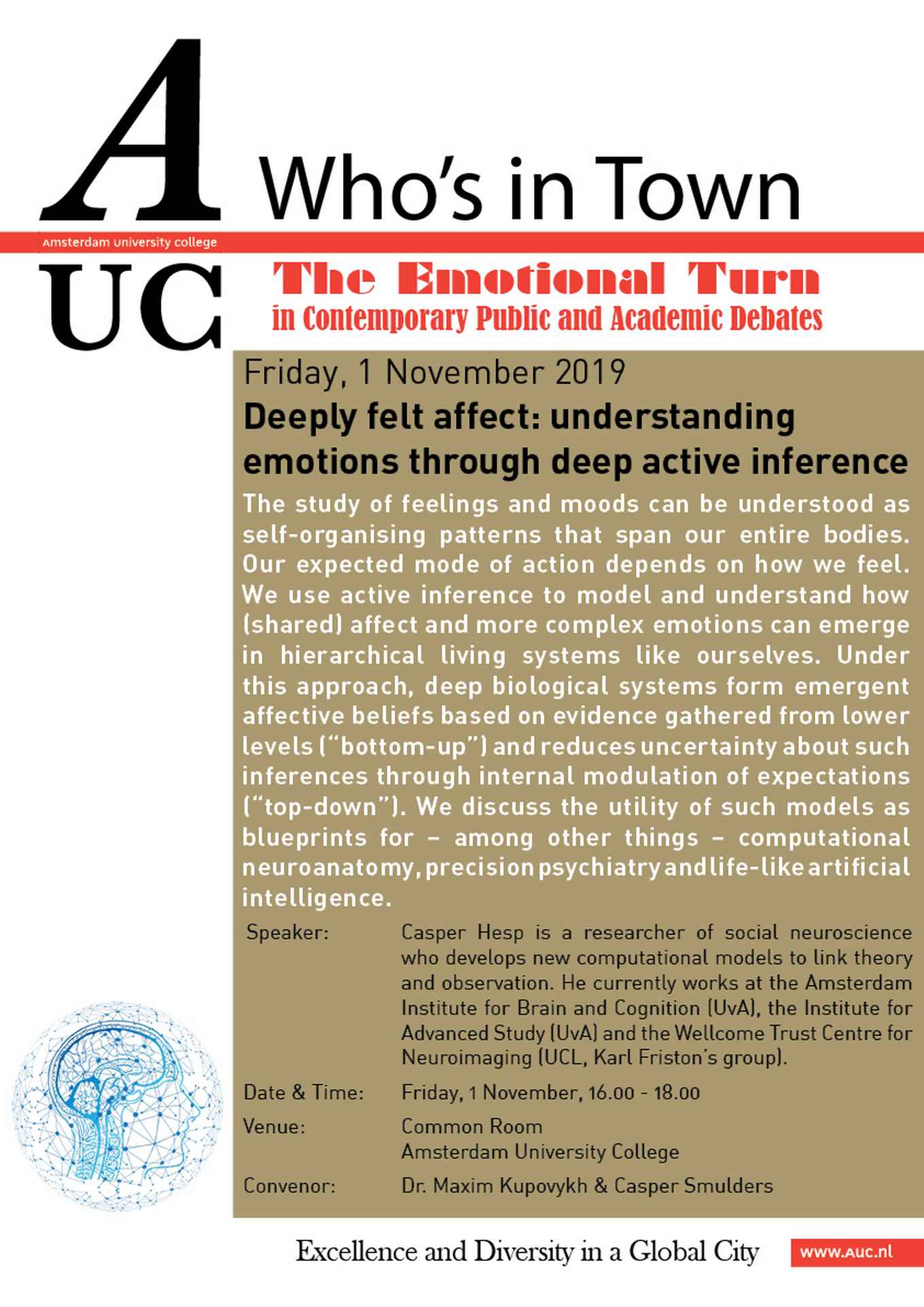Deeply felt affect: understanding emotions through deep active inference
- Date
- 1 November 2019
- Time
- 16:00 -18:00

Our expected mode of action depends on whether we feel relaxed or depressed, excited or anxious. For social animals that care for each other and work together – like us – it is crucial to track each other's feelings. A mother responds to the distress of her baby; a child checks whether its parents approve; a coach gives a pep talk when team morale is low.
In this line of work, we use active inference – a next-generation, biology-based form of (Bayesian) artificial intelligence – to model and understand how (shared) affect and more complex emotions can emerge in hierarchical living systems like ourselves. Under this approach, deep biological systems form emergent affective beliefs based on evidence gathered from lower levels (“bottom-up”) and reduces uncertainty about such inferences through internal modulation of expectations (“top-down”). We discuss the utility of such models as blueprints for – among other things – computational neuroanatomy, precision psychiatry and life-like artificial intelligence.
| Speaker: |
Casper Hesp is a researcher of social neuroscience who develops new computational models to link theory and observation. He currently works at the Amsterdam Institute for Brain and Cognition (UvA), the Institute for Advanced Study (UvA) and the Wellcome Trust Centre for Neuroimaging (UCL, Karl Friston's group). He has backgrounds in both computational astrophysics (MSc, Cum Laude) and cognitive neuroscience (MSc, Cum Laude), and has published work in both fields. For his PhD research, Casper has been awarded the NWO Research Talent Grant to model the emergence of socio-emotional function in neuro-cognitive development. |
| Venue: | Common Room Amsterdam University College Science Park 113 Amsterdam 1098 XG |
| Convenors: | Dr. Maxim Kupovykh & Casper Smulders |